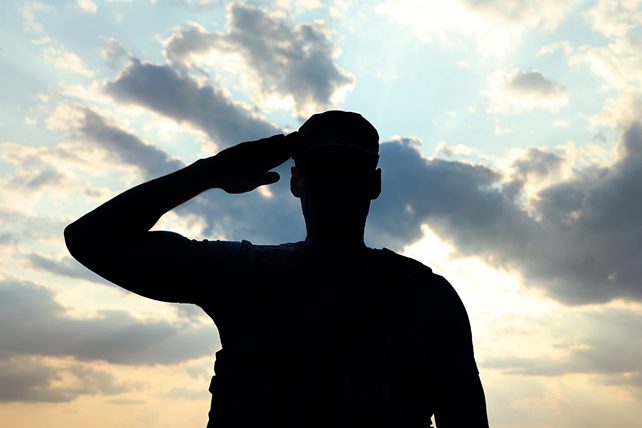As a former combat soldier, I know all too well the toll that service can take on a person—physically, mentally and emotionally. The transition from the battlefield to civilian life is never easy, and many veterans like me face a new kind of fight: finding purpose and balance in a world that feels vastly different from the one we left behind.
In helping other veterans navigate this transition, I’ve come to realize that the secret to becoming an unstoppable force for good lies in achieving balance across all areas of life—personal, family and professional. Without it, we risk losing ourselves and our ability to make a meaningful impact.
Balance is essential. Many veterans focus too heavily on one area—often work—while neglecting others like family or health. Whether you’re a corporate executive, a nonprofit leader or a business owner, this imbalance leads to burnout and strained relationships. I often think of a NASCAR pit stop; just like a car needs maintenance, we need rest and self-care. I believe that achieving balance requires intentional effort in the following nine areas to maintain our physical, mental, social and spiritual well-being:
Living in Light of Eternity
Life is fragile and unpredictable. I lost friends in combat, and those moments remind me that each day is a gift. We need to live with eternity in mind, focusing on what truly matters. Time is short, and we should ask ourselves: What legacy are we building? By embracing this mindset, we can live deliberately and with purpose.
Recognizing the Importance of Purpose
Purpose is everything. After leaving the military, I realized that chasing a paycheck was empty. True fulfillment comes from serving a higher calling. It’s vital for veterans to find clarity on their personal mission. When we know our purpose, we can make a meaningful impact. Living for something bigger than ourselves gives us direction, and that’s where true satisfaction lies.
Knowing Your Identity
Understanding who you are is key to living with purpose. Too many people confuse their past or their profession with their core identity. But identity is deeper than what we do—it’s about our values and beliefs. It took me years to separate the warrior from the man I was becoming, but once you know your true self, you can face life with confidence and resilience.
Addressing Mental Health
Mental health is often overlooked in the veteran community and has become pervasive across our society. I’ve struggled with PTSD, and for a long time, I avoided addressing it. But real strength comes from acknowledging your challenges and seeking help. Ignoring mental health leads to burnout and broken relationships. Prioritizing it is essential for healing and building strong connections.
Maintaining Physical Health
Physical fitness and mental clarity go hand in hand. Exercise and proper nutrition aren’t just about physical health; they help maintain mental sharpness and emotional resilience. Taking care of your body leads to a clearer mind and a healthier emotional state. Veterans should prioritize sleep, fitness and self-care to be their best selves.
Establishing Commitment and Discipline
Nothing worthwhile in life comes easy. Military life taught me that discipline is the foundation of success. Whether pushing through training or personal struggles, commitment kept me going when things got tough. The same principle applies to civilian life. Stay committed to your goals and purpose, even when the road is difficult. Success comes from perseverance, not perfection.

